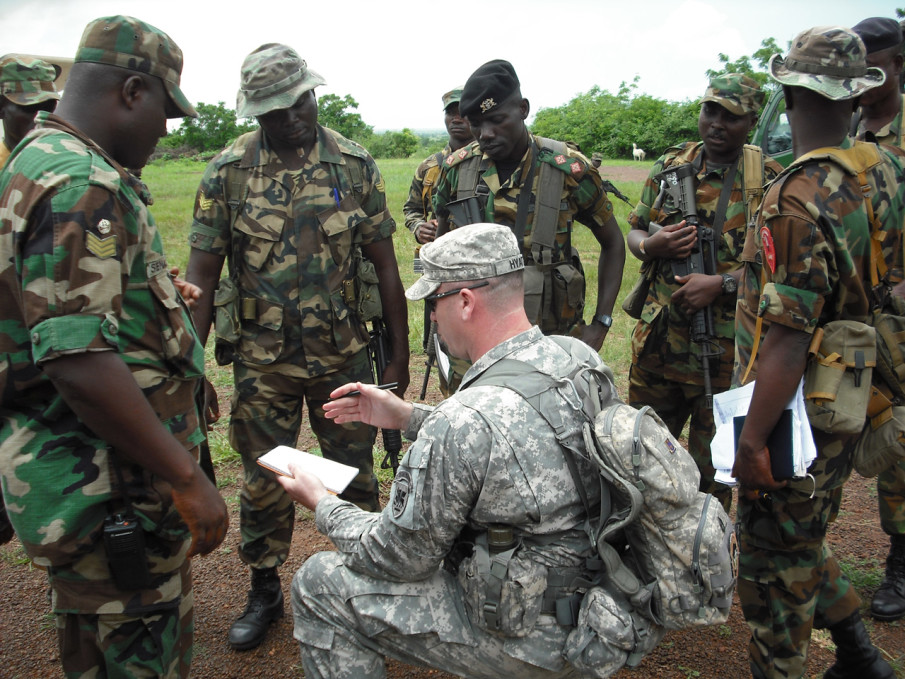To continue the Foreign Internal Defense series where Loren left off, I want to talk a bit about the concept of mirroring and why it is dangerous for Special Forces soldiers. Mirroring occurs when we imagine that foreign, friendly military units or unfriendly terrorist organizations are a mirror image of ourselves. We do this because we are locked into path dependency and have been deeply institutionalized in the military. It is also a matter of laziness. “This is like that” comparisons don’t really work.
What I mean by this is that you can’t say “Al-Qaeda has a rigid military hierarchy,” because if you look at the structure of that organization, it is much more horizontal than the U.S. military. You can’t say “China’s Ministry of State Security is the government’s main domestic and international intelligence organization performing functions similar to the U.S. Central Intelligence Agency and Federal Bureau of Investigation.” No, it really isn’t, and this is an intellectual shortcut. The MSS is a very different animal with a very different structure. To say that it is like the CIA or FBI gives a false impression of what it really is.
What about Iran’s Quds Force? Aren’t they Iranian Special Forces? Well, when you say that, it brings U.S. Special Forces to people’s minds, and they will immediately equate Quds Force to Green Berets. However, these units could not be more different in their approach to unconventional warfare.
I hope this begins to explain why mirroring is something that you have to be very aware of when it comes to intelligence gathering and briefing superiors who may jump to conclusions. Now, let’s talk about why mirroring is dangerous when conducting Foreign Internal Defense.
When I first showed up in Special Forces, I was coming right out of my previous unit—3rd Ranger Battalion. To say the cultures between SF and Rangers differ is an understatement. When I got to Iraq with 5th Special Forces Group, I had preconceived notions of how things should be done from my time as a Ranger. I really intended to take the Iraqi SWAT Team I was in charge of and turn them into a mirror image of a Ranger platoon.
At one point, my team sergeant sat me down and said, “Jack, what do you want ISWAT to be able to do?” My answer was direct, if lacking detail: “I want them to be the best.” But my approach at that time was naive and misguided. It was also doomed to failure.
Turning ISWAT into a mirror image of Rangers was naive because I was not working with highly trained American soldiers, but rather minimally trained Iraqi soldiers. They were good troops, but there was no way they could ever reach the level of our Rangers. Part of it was because the training programs and equipment were not available to them, but more important was that the level of education simply was not there.
I’m not saying Iraqis are dumb, but let’s be honest with ourselves: Many of them literally never got beyond the first grade. This lack of education manifests itself in military training in multiple ways, from the soldiers not grasping some of the technical aspects of the job, to them not having the comprehension to even understand why their training is important in the first place.
Mirroring ISWAT like this was also misguided, because it wasn’t my job to create an Iraqi unit that did all the same things a Ranger platoon did. As our sergeant major later told us, “Your job is to train these guys only on the tasks that you need them to do.” In other words, since we had a direct-action element that we were training, it was our job to teach them the basics of what they needed to know in order to do their jobs. That meant room clearing, breaching, medical training, driver’s training, mission planning, and not much else.
There was no need or requirement to train them to fast rope from helicopters or give them advanced sniper training. There wasn’t even much need to train them on basic infantry battle drills such as squad attack, for instance. Still, I bent the rules a bit, and since ISWAT did go on to do a cross-border ambush in Syria a year later, it was probably a good thing that I did.
The point is, when conducting FID, your job is not to create a mirror image of American forces, but rather to give your host-nation counterparts some basic skills to help them rise above their opposition and help effect tactical victories on the battlefield. Training them to American levels of proficiency may not be preferable or supported by U.S. policy decisions.
Already have an account? Sign In
Two ways to continue to read this article.
Subscribe
$1.99
every 4 weeks
- Unlimited access to all articles
- Support independent journalism
- Ad-free reading experience
Subscribe Now
Recurring Monthly. Cancel Anytime.











COMMENTS